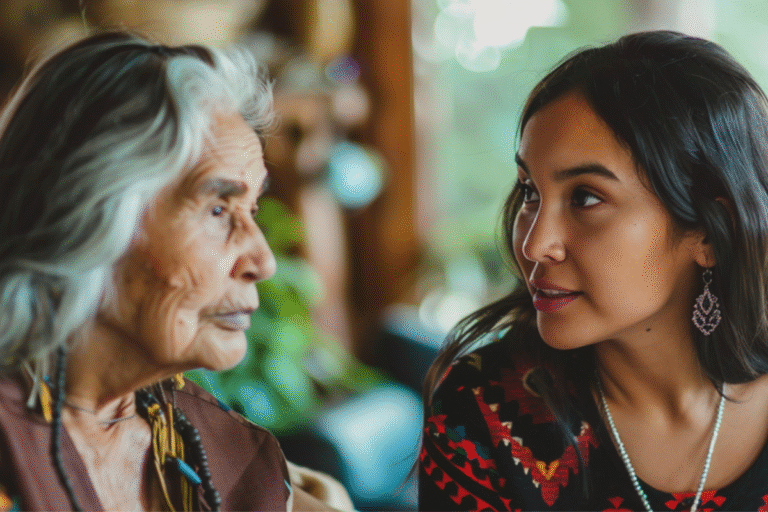“Trauma is a part of life, but it doesn’t have to define it.” ~ Peter A. Levine
Many individuals deal with the effects of inherited trauma, which can lead to substance misuse.
Here are some strategies for those affected by generational trauma.
Recognizing and Addressing Generational Trauma
Experiencing trauma alters how you engage with life, and unresolved trauma can influence your family and future generations.
Generational trauma can affect entire family dynamics for years unless someone actively seeks to address and transform it.
How Is Intergenerational Trauma Transmitted?
The ways trauma is passed from one generation to another are still under investigation.
Caregivers who have endured traumatic experiences may unintentionally transfer these effects to their children if they lack the coping strategies to manage their past.
Numerous psychiatric studies suggest that when parents suffer from post-traumatic stress disorder, it correlates with a higher incidence of adverse childhood experiences for their children, increasing the likelihood of mental health issues in youth.
Trauma can manifest in various forms. According to the Diagnostic and Statistical Manual of Mental Disorders (DSM-5), trauma can arise not only from direct experience or witnessing a traumatic event but also from hearing about a violent or traumatic experience involving a loved one.
In essence, when trauma survivors share their stories with children and young people, they may unknowingly transmit the trauma’s impact.
Genetic Changes from Trauma
Research indicates that certain traumas may cause genetic changes that can be passed down but do not alter the DNA structure itself.
Epigenetic modifications have been observed in healthy adults who faced childhood trauma, such as neglect or abuse, as well as among children of Holocaust survivors.
While there is not yet enough evidence to clarify how experiences like sexual abuse or domestic violence induce these changes, trauma-informed psychiatrists are exploring this connection.
Who is Affected by Intergenerational Trauma?
Anyone with a family history of trauma may experience its effects, which can be transmitted to future generations.
Certain identities may also increase the likelihood of developing intergenerational trauma.
Collective and Multigenerational Trauma
Widespread trauma affecting large groups can result in a legacy of trauma impacting many generations. Systematic oppression, war, and significant natural disasters can lead to this form of transmission.
Groups such as African Americans, Native Americans, and children of Holocaust survivors are more susceptible to transgenerational trauma due to the historical trauma experienced by their ancestors.
Identifying the Symptoms of Generational Trauma
Generational trauma presents many symptoms similar to other forms of trauma:
- Heightened awareness
- Substance dependency
- Increased sensitivity to stress
- Low self-esteem
- Emotional distress
If you’re experiencing mental health issues, the most beneficial step is to reach out to a mental health professional. Battling generational trauma in isolation can severely impact both your mental and physical health.
Steps to Overcome a Legacy of Trauma
If generational trauma is not addressed, it can severely impact your quality of life.
Often, parents and relatives lack the skills to cope with their traumatic experiences. Without awareness, you might pass these effects onto the next generation.
Acknowledging the trauma inherited from loved ones can be difficult, and facing it may be even more challenging. However, failing to address it can perpetuate mental health issues in future generations.
Navigating trauma passed down from loved ones can be particularly tough. Establishing healthy boundaries is essential for healing.
“`html
Ending the cycle of generational trauma within your family requires bravery, assistance, and time.
The initial step is to identify generational or historical trauma and its effects on your life. This understanding serves as the groundwork for transformation.
After reflecting on your family’s past, consider reaching out to a mental health professional. These experts can create a treatment strategy and offer interventions suited to your needs.
Learning effective coping skills significantly helps you stay calm when confronted with triggers, which is essential for shielding younger generations from trauma.
Above all, practice kindness towards yourself. Healing from trauma is a slow and non-linear journey. Embrace self-compassion as you manage your experiences, and remember that it’s perfectly fine to distance yourself from harmful relationships.
Building a Brighter Future
By addressing the past and cultivating healthy behaviors and emotional regulation, you set an example for those around you. This means younger generations are less likely to adopt harmful coping mechanisms, and it might inspire older generations to confront their own trauma as well.
Change and hope can spread like wildfire.
Keep in mind that you aren’t on this path alone. With the right support and resources, you can interrupt the trauma cycle, establishing a legacy of resilience, strength, and love. Your efforts today can foster healing for tomorrow.

He has over 25 years of leadership experience in both the for-profit and non-profit sectors.
Lawrence earned a Master of Business Administration (MBA) from Youngstown State University and taught as an adjunct faculty member at YSU’s Williamson College of Business for over ten years. Additionally, he is a current trustee for Boardman Township.

“`



